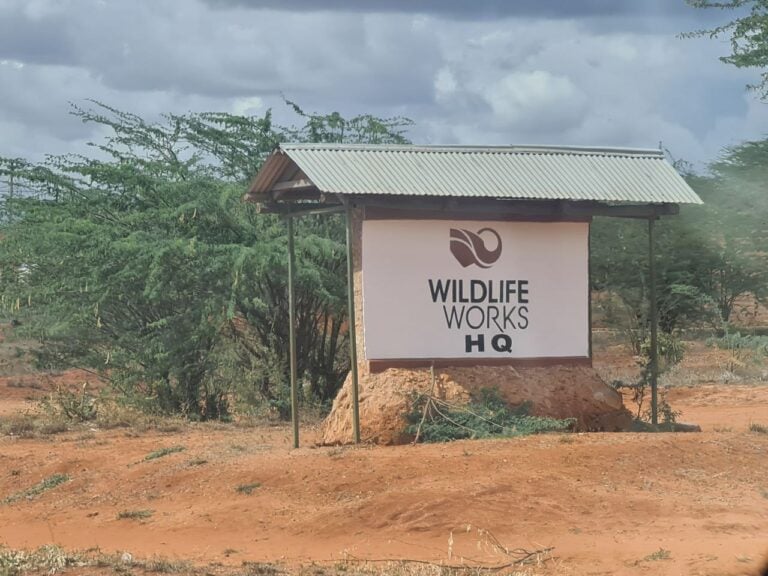
COP28 cop-out
A business fair for fossil fuel and Offset industries
Last year ended with another round of UN climate negotiations (COP28) that pretended to be a success in addressing the climate crisis. Most headlines hailed the COP28 agreement, which calls for countries to ‘transition away’ from fossil fuels, as a victory for the climate agenda. However, this vague language not only allows the continued use of fossil fuels but also promotes the expansion of an industry whose primary objective is to maintain the use of fossil fuels – the carbon offset industry.
At COP28, the offset industry, which includes project developers, auditors, creditors, banks, traders and buyers, went to considerable lengths to revive confidence in the controversial and flawed carbon market. Yet, be it under-regulated schemes linked to the Paris Agreement or under new standards claiming to ensure ‘high-quality carbon credits’, carbon offsets’ structural problems cannot be resolved. In 20 years, they have proven to be a massive failure when it comes to addressing climate pollution. The offset industry needs to be abolished if the world is to advance in a real and just transition.
In this post, we take a look back at some of the outcomes of COP28 and what they mean for climate justice work in 2024.
The devil is in the (lack of) details: The COP28 agreement
The inclusion of the widely celebrated phrase ‘transitioning away from fossil fuels’ was one of the main outcomes of the COP28 agreement. This ambiguous phrase, however, can mean different things to different actors or even nothing at all. It does not specify how much action is required and who is responsible for taking it, nor does it set a timeline for achieving anything specific. Furthermore, it lacks any reference to equity, as it fails to differentiate between countries on their responsibility when it comes to ‘transitioning away’ from fossil fuels based upon their differing historical responsibilities(opens in new window) for emissions.
The United States remains the world’s largest producer of oil(opens in new window) and gas(opens in new window) . The growth in production of refined oil products in 2022 was largely driven by OECD countries, including the United States, the European Union (especially Italy, France, Germany and Spain), the United Kingdom, South Korea and Japan. The majority of oil and gas producers anticipate(opens in new window) increasing their production until 2030 and some until 2050. These countries were jubilant about the language on ‘transitioning away from fossil fuels’ – phrasing that can be made to sound like progress, while the reality is that they are not expected to take any clear actions to reduce their production.
These countries, along with an unprecedented presence(opens in new window) of fossil fuel lobbies, also lined up during COP28 to legitimise the carbon offset industry, an industry whose core selling point is that it enables the continued use of fossil fuels by wealthy countries and big businesses.
How to avoid real emissions reductions: the carbon offset issue
Offsets are an indispensable element of what is known as ‘carbon markets’. The idea underpinning offsetting is that emissions in one place are ‘cancelled out’ by projects established elsewhere that claim to be removing, reducing or avoiding equivalent emissions. This has created a lucrative industry that buys and sells carbon credits, which is expected to grow significantly in the coming years.
Carbon markets operate under both compliance-based and voluntary schemes. Compliance markets emerge in response to binding emissions reduction targets set by regional, national and international agreements, such as the 1997 Kyoto Protocol and the 2015 Paris Agreement. Offset credits traded within a compliance-based market allow entities under the scheme to reach their binding emissions reduction targets.
Voluntary carbon markets, which exist alongside compliance markets, enable companies, governments and individuals that have voluntary reduction targets to purchase carbon offset credits from project developers or carbon brokers. Offset credits are ultimately bought by many industries, such as airlines, oil companies and agribusiness, for them to claim to be moving to net zero without having to meaningfully reduce their emissions. In 2021, the voluntary market grew at a record pace, reaching $2 billion(opens in new window) —four times its value in 2020 – and is expected to become at least five times bigger by 2030.
In a nutshell, carbon offsets, no matter if under regulatory or voluntary schemes, are a licence for polluting industries to continue and expand their operations (opens in new window) (and pollution).
The carbon offset industry has for years argued that offsets are the most efficient way to deliver the much-needed funds for conservation and mitigation actions, especially in the global South. Yet, more than 20 years of offset projects have failed to mitigate pollution or deforestation and, as SOMO outlined in a previous post, there are many reasons why the industry should be abolished.
The Article 6 controversy
The main issue at stake during COP28 was the definition of Article 6 of the Paris Agreement, which is where the rules of the game for the regulated carbon market would be defined. Two parts of this Article are at the centre: Article 6.2, which would allow governments to bilaterally trade carbon credits, known as Internationally Transferred Mitigation Outcomes (ITMOs), within the UN system and Article 6.4, would establish an international carbon market to enable governments and companies to buy carbon offsets to meet their targets and achieve their net-zero commitments.
Debates were largely not about whether carbon offsets should play a role in international climate policy but rather how they should do so.
Negotiations on Article 6 nonetheless failed to reach a consensus. Some countries advocated for almost no reporting obligations, a position encouraged by the strong corporate presence. The US, for example, argued that each country should be able to trade without sharing any information, making the tracking of carbon deals nearly impossible. Other countries were pushing for clearer regulations to ensure more confidence and stability in the market. Given the track record of human rights violations and flawed methodologies related to offset projects, a lot of questions remain over what would be eligible to be traded. Yet, all of these positions would lead to the expansion of the profit-seeking carbon offset industry. This, in turn, would promote more fossil fuel extraction and pollution. Because the more offset projects, the more emissions elsewhere. That is the core of the industry.
Carbon credits under Article 6.2 can already be traded between countries. Singapore, Switzerland, and Sweden, among other countries, have already signed contracts to buy credits from countries such as Ghana, Papua New Guinea and Thailand.
Countries hosting offset projects, which are mainly in the global South, often entrapped in debt and financial difficulties, keep being lured into selling control of their land and forests in return for foreign investment. There is abundant evidence that foreign investors’ exploitation of natural resources across much of the global South has often been accompanied by illicit financial flows, frequently connected to tax avoidance and entrenched economic inequality.
On top of this, there are indications that voluntary market credits could also be used for compliance-based markets. Singapore(opens in new window) and Chile(opens in new window) , for example, have decided to recognize credits from the voluntary market issued by agencies such as Gold Standard and Verra in their national compliance markets. There have always been proposals to link Article 6.2 with Article 6.4. Linking them, however, would level up carbon markets into a trading system at a scale never seen before.
No agreement on Article 6 is definitely better than an agreement establishing the rules of a market that is structurally flawed and damaging to the climate and to vulnerable populations, particularly in the global South. However, the lack of an agreement is also being celebrated by key participants in the voluntary carbon market. Without an agreement, they can continue and expand their business without making many adjustments.
Revolving doors around offsets: certifiers, polluters and financial actors
During the climate summit, the COP28 Presidency, led by Sultan Al Jaber, chief executive of UAE’s state oil company, Adnoc, hosted a High-Level Roundtable(opens in new window) to support the development of “an integrated, high-integrity and global carbon markets architecture.” The event was supported by several prominent figures, including the UNFCCC Executive Secretary, the World Bank Group President, the Glasgow Financial Alliance for Net Zero (GFANZ) -which is the world’s largest coalition of financial institutions to accelerate a net-zero economy-, and former governor of both the Bank of Canada and the Bank of England, now UN Special Envoy for Climate Finance, Mark Carney. Speakers claimed that ‘high quality carbon credits’ are the way forward to bring confidence and stability in the voluntary markets. And this would be achieved, they argued, via a new standard called Core Carbon Principles led by the Integrity Council for Voluntary Carbon Markets (IC-VCM).
The IC-VCM is made up of executives linked to(opens in new window) some of the biggest fossil fuel and financial companies, including Blackrock, BNP Paribas, Shell and the Institute of International Finance (IIF) – the largest global industry association and lobby club of the private financial industry, whose members(opens in new window) include several of the world’s top 50 fossil fuel financiers. IC-VCM’s Executive Secretariat includes the International Emissions Trading Association (IETA), which is the biggest industry lobby group inside the UN climate negotiations(opens in new window) . The current board of IETA includes people with ties to Enel, RWE, Chevron, Rio Tinto, BP and others.
The establishment of the Core Carbon Principles (CCPs) was initially launched by the ‘Taskforce on scaling voluntary carbon markets’. They claimed that the CCPs would be a “meta-standard for high-quality credits” and were intended to harmonize credits across the voluntary market. In 2021, the IC-VCM was tasked to move forward the work of the Taskforce and officially launched the CCPs in mid-2023. Standard-setting bodies approved by the IC-VCM are then the entities responsible for giving accreditation under the CCPs to specific offset projects. These standard-setting bodies, in turn, rely on environmental and social audit companies to verify the project’s performance. Both the standard-setting and the verification bodies have consistently failed to report serious offset projects’ violations and methodological flaws.
At the beginning of COP28, the six largest organisations that run carbon standards – namely Verra’s Verified Carbon Standard (VCS), Gold Standard, ACR (formerly American Carbon Registry), Architecture for REDD+ Transactions (ART), Climate Action Reserve (CAR) and Global Carbon Council (GCC) -, indicated that they are seeking approval under the IC-VCM’s Core Carbon Principles, and announced(opens in new window) a collaboration “to promote integrity throughout 2024 to create the next step-change in the dependability of carbon markets”. What they do not mention is the unresolvable conflict of interests that is at the core of their business: auditors and certifiers’ profits depend on their clients selling (more) carbon credits, which gives them little incentive to report any violations or problems that would undermine the project.
Despite the vast propaganda during the UN summit for these so-called “high integrity carbon credits” – the IC-VCM alone hosted 32 events(opens in new window) during COP28 –the structural problems of carbon offsetting remain.
These problems, particularly for forest-based carbon offsets, are not only related to methodological or technical but also to a range of negative local impacts. The abuses documented include conflicts, forced relocation, weakening or undermining of local land tenure systems, violations of human rights and threats to the livelihoods of those who live on and depend on the land. The reality of carbon offsetting is that large areas of land – and the lives of the people who live there – are being handed over to the control of a profit-seeking industry.
Carbon offsets have no place in addressing the climate crisis
The design of carbon offsetting is unfixable. The industry peddles a dangerous fallacy that the climate crisis is being addressed while simultaneously being the smoke screen behind which fossil fuel companies and their biggest customers expand business and emissions. Carbon offsets obstruct real climate action, exacerbate land grabbing and lock in an economic model of ‘growth at all costs’. They fail to reduce pollution, and, what is worse, the industry causes widespread human rights abuses and inequality.
No standard can solve the fundamental problems embedded in an industry which aims to protect the interests of the wealthy. This becomes evident when those promoting the new standard for ‘high quality’ credits are the ones that end up profiting from the same market that they are supposed to regulate.
COP28 showed again how different actors of the offset industry and the fossil fuel industry are working together to avoid real structural change, from wealthy asset managers funnelling billions into polluting companies to certifiers legitimizing flawed offset projects. Market-driven mechanisms designed by carbon brokers, financial institutions, and polluting industries reinforce colonial, capitalist and patriarchal systems, affecting those who have the least responsibility for the climate crisis the most.
It is time to take radical steps. There is no more time to lose.
SOMO joins the many voices resisting the offset industry, in particular those defending their territories from the expansion of both the fossil fuel and the offset industries. The coming years are essential to resist the expansion of carbon offsets, which are blocking the way for phasing out fossil fuels and building liveable futures.
Do you need more information?
-

Joanna Cabello
Senior Researcher -

Ilona Hartlief
Researcher
Related news
-
Carbon Offsets: the ‘go-to’ industry for big business greenwashing needsPosted in category:Opinion
 Audrey GaughranPublished on:
Audrey GaughranPublished on: Audrey Gaughran
Audrey Gaughran -
 Systemic sexual abuse at celebrated carbon offset project in KenyaPosted in category:News
Systemic sexual abuse at celebrated carbon offset project in KenyaPosted in category:News Maria HengeveldPublished on:
Maria HengeveldPublished on: -



